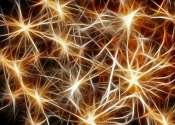A pioneering study discovers an underlying cause for infantile spasms and points to a novel therapy
Infantile spasm (IS) is a severe epileptic syndrome of infancy and accounts for 50% of all epilepsy cases that occur in babies during the first year of life. Current treatment options for this disorder are limited and most ...
May 20, 2022
0
12









